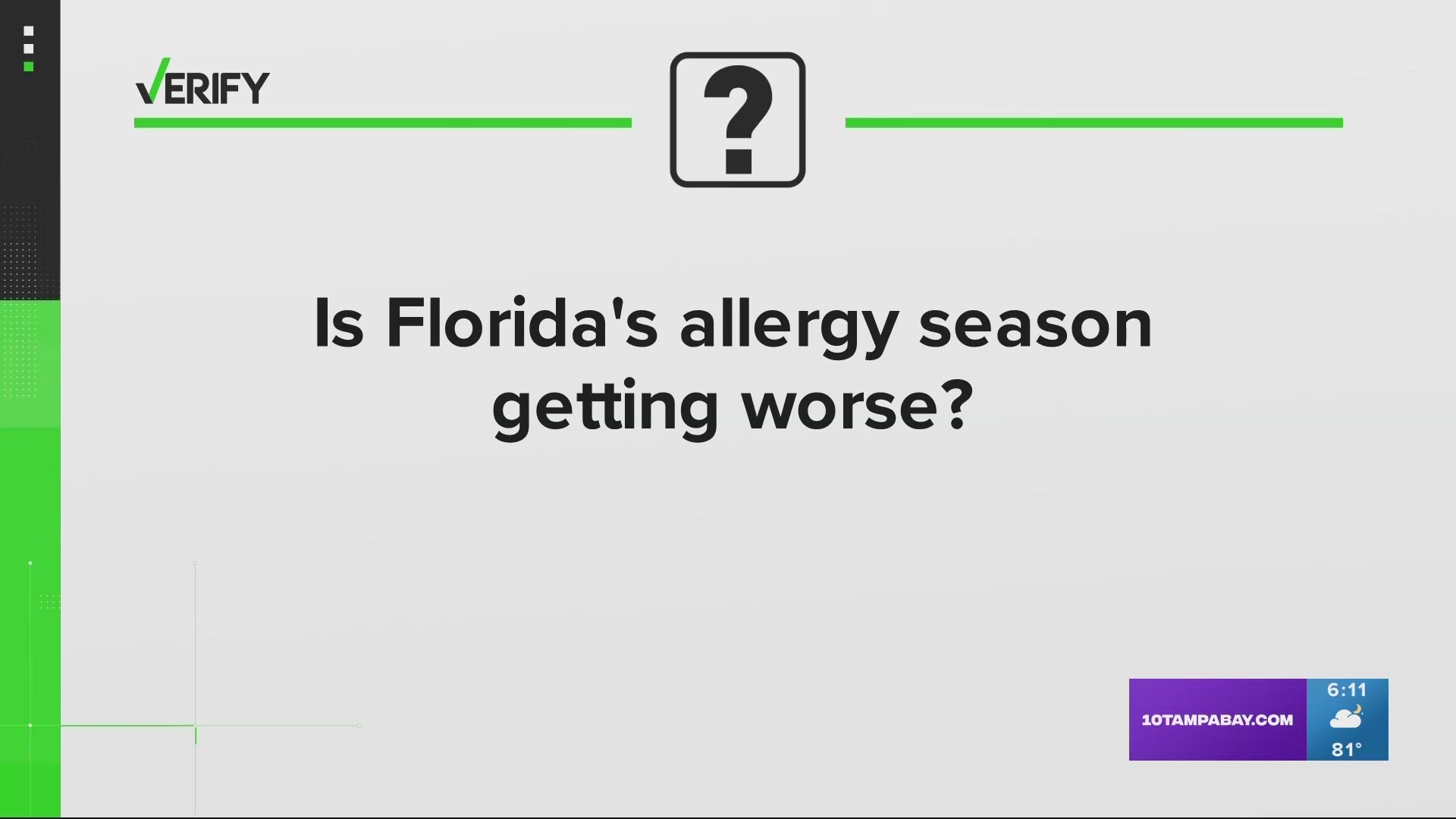ST. PETERSBURG, Fla. — If you are sniffling and sneezing right now you’re likely not alone.
Signs of spring here in Florida started to show up as early as January in parts of the state as the grasses started to grow again and trees began to blossom.
In other parts of the U.S., they’re seeing one of the earlier springs on record.
A VERIFY viewer asked if it was her imagination or if the allergy season in Florida is actually getting longer.
THE QUESTION
Is the allergy season getting longer in Florida?
THE SOURCES
- American College of Allergy, Asthma & Immunology (ACAAI)
- University of Miami Health
- Dr. Farnaz Tabatabaian, MD, USF Health allergy, asthma, immunology specialist
THE ANSWER
Yes, the allergy season in Florida is getting longer and pollen concentrations are becoming more intense, according to research.
WHAT WE FOUND
Your nose probably already knows.
Recent research from the American College of Allergy, Asthma and Immunology (ACAAI) found that pollen seasons aren’t just getting longer, they’re becoming more intense as concentrations increase.
Data from ACAAI shows pollen seasons for plants like trees, grasses and weeds increased in length by 20 days while pollen concentrations increased by 21 percent.
The findings are based on pollen counts measured from 60 stations across North America over a nearly three-decade period.
For Floridians it means a virtually year-round pollen season, said Dr. Farnaz Tabatabaian. While March is typically her busy time for patients, she said in her 10 years practicing in the state the period has slowly shifted to starting earlier and lasting through May.
On top of that she says we’re also seeing pollens right now we typically don’t see this time of year, like ragweed.
“It’s definitely significant,” she said.
In large part, she says, climate change and warming temperature trends is to blame.
“We definitely have a year-long exposure to allergens compared to other states where you do get that cold and frost,” she said. “But I do see a more predominance in patients who maybe didn't have symptoms before and now they're experiencing symptoms, and again, it's beginning because of the shift in the environment that we've had over time.”
So what can you do for relief?
Dr. Tabatabaian says being proactive is key — don’t wait for symptoms.
- Start over-the-counter antihistamines and nasal sprays when the season begins
- Don’t skip on changing the filter in your home’s air condition
- Clean your sheets regularly
- Wipe down your pets when they come inside
Tabatabaian also says starting allergy therapy over the course of several seasons through shots can help bring lasting relief for years.

